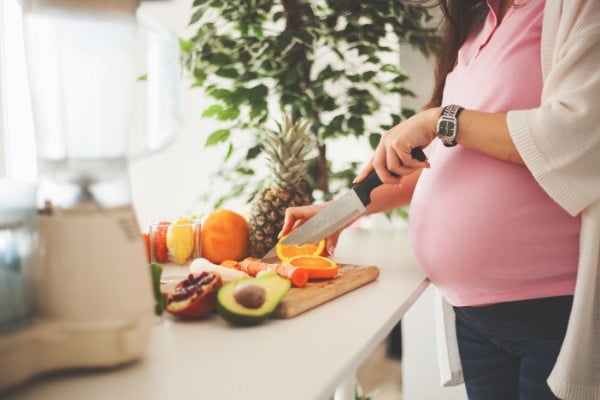Pregnancy is a transformative period in a woman’s life, marked by incredible changes in her body and the development of a new life within. It is crucial for expectant mothers to prioritize their nutrition during this time, as it directly impacts the health and well-being of both the mother and the growing baby. A well-balanced diet that includes a variety of essential nutrients is vital for a healthy pregnancy and optimal fetal development.
Protein is an essential nutrient that plays a fundamental role in the growth and development of the baby. It is responsible for building and repairing tissues, including those of the baby’s organs, muscles, and cells. Good sources of protein include lean meats, poultry, fish, eggs, legumes, nuts, and dairy products.
Calcium is another crucial nutrient during pregnancy, as it supports the development of the baby’s bones and teeth. It also plays a role in nerve function, muscle contraction, and blood clotting. Dairy products such as milk, cheese, and yogurt are excellent sources of calcium. Leafy green vegetables, fortified plant-based milks, and tofu are also good alternatives for those who follow a vegetarian or vegan diet.
Iron is vital for the production of red blood cells, which carry oxygen to both the mother and the baby. During pregnancy, the body requires increased amounts of iron to support the growing blood supply. Iron-rich foods include lean red meats, poultry, fish, legumes, fortified cereals, and leafy green vegetables. Consuming vitamin C-rich foods, such as citrus fruits, alongside iron-rich foods can enhance iron absorption.
Folic acid, or folate, is a B-vitamin that plays a crucial role in preventing birth defects of the baby’s brain and spine. It is recommended that women take a daily supplement of folic acid before and during early pregnancy. Good food sources of folic acid include leafy green vegetables, citrus fruits, fortified cereals, and legumes.
Omega-3 fatty acids are essential for the baby’s brain and eye development. They also support the mother’s overall health during pregnancy. Fatty fish like salmon, trout, and sardines are excellent sources of omega-3 fatty acids. For vegetarian or vegan mothers, alternative sources include walnuts, chia seeds, flaxseeds, and algae-based supplements.
In addition to these essential nutrients, it is crucial to stay adequately hydrated during pregnancy. Drinking plenty of water helps maintain the amniotic fluid levels, aids digestion, and prevents constipation. It is recommended to consume around 8-10 cups of water per day, and more if engaging in physical activity or during hot weather.
While a well-balanced diet forms the foundation of a healthy pregnancy, it is important to consult with a healthcare professional or a registered dietitian to ensure specific nutritional needs are met. They can provide personalized guidance, taking into consideration any specific dietary restrictions, allergies, or medical conditions.
Remember, every pregnancy is unique, and individual nutritional requirements may vary. By prioritizing a nutritious diet and incorporating essential nutrients, expectant mothers can support their own well-being and contribute to the healthy development of their babies.



